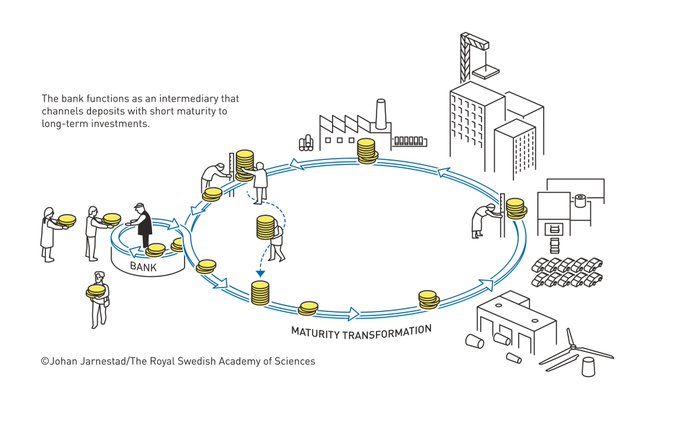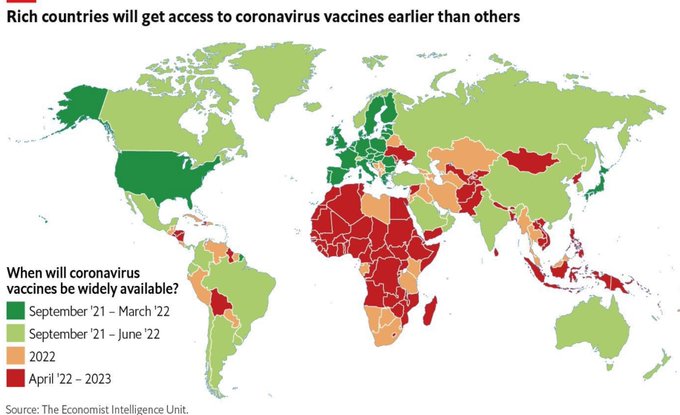
Jens van 't Klooster 🟦🟦🟦
@jvtklooster
Followers
7,365
Following
2,687
Media
752
Statuses
11,004
Philosophy & Economics, the ESG anthropocene, technocrats and more | “Non-profit finfluencer” | @jvtk .🟦 .soc | @UvA_AISSR @Politics_UvA @GRI_LSE
Amsterdam, Brussels
Joined May 2015
Don't wanna be here?
Send us removal request.
Explore trending content on Musk Viewer
Liz Cheney
• 831368 Tweets
Diddy
• 362118 Tweets
Epstein
• 338427 Tweets
Christmas
• 229436 Tweets
#الهلال_النصر
• 204235 Tweets
Tinubu
• 104127 Tweets
Hugh Hewitt
• 65130 Tweets
Thanksgiving
• 34014 Tweets
القحطاني
• 30384 Tweets
Bieber
• 29693 Tweets
رونالدو
• 29054 Tweets
جيسوس
• 28770 Tweets
ناصر
• 25793 Tweets
تاليسكا
• 24764 Tweets
#NMA2024
• 23746 Tweets
مالكوم
• 23713 Tweets
Nathan
• 23079 Tweets
Amir
• 22190 Tweets
Monaco
• 21574 Tweets
سافيتش
• 19133 Tweets
Arizona AG
• 15116 Tweets
Leverkusen
• 14981 Tweets
#NRJmusicawards
• 14865 Tweets
البليهي
• 14664 Tweets
علي الحكم
• 13666 Tweets
Dimite
• 13307 Tweets
الشوط الاول
• 12427 Tweets
الشوط الثاني
• 10939 Tweets
Last Seen Profiles
Pinned Tweet
BOOM!🔥🔥🔥
Shockflation has uprooted Europe. After living standards plummeted, a far right surge is engulfing Germany & France is in turmoil.
In a new report for
@Europarl_EN
,
@jvtklooster
& I urge for a new economic policy playbook to prepare for future shocks.🧵
16
229
515
2
20
111
This week, I received angry text messages from Noah Smith demanding an apology for saying his blogs on
@IsabellaMWeber
were “silly polemics”. So I dug into his writings and, my friends, it’s worse than just silly.
Do join me for a tour of
@noahpinion
on Isabella Weber’s work.
37
207
1K
Did policymaking really change after 2008? Not immediately, but a genuine paradigm shift is taking place… amongst central bankers and EU technocrats setting financial and fiscal rules.
Technocratic Keynesianism - A summary👇
Open access at
@NPEjournal
:
12
193
716
Saying the central bank has an "inflation brake" is a mistake on a par with the idea that the state is a household that must pay back its debt.
Just some comments on this particularly vapid unsigned
@TheEconomist
piece. 1/
11
139
567
Finally out! On the European Central Bank, technocracy, and one of the most painful chapters in European integration: the
#ECB
’s treatment of sovereign debt (going from 1988 till 2020)
A quick summary 👇 /1
#Openaccess
9
109
426
Sure a real Nobel prize, nothing ideological happening here at all just banks intermediating gold coins between normal people and productive investment
The work for which Ben Bernanke, Douglas Diamond and Philip Dybvig are being recognised has been crucial to subsequent research that has enhanced our understanding of banks, bank regulation, banking crises and how financial crises should be managed.
#NobelPrize
95
414
1K
8
44
355
Out
#openaccess
! ‘Rethinking Monetary Sovereignty’ (with
@steffenmurau
)
On the state, global credit money, currency hierarchies and the inadequacy of our current conceptions of monetary sovereignty.
A 🧵
10
93
353
1/ Why are
@ecb
central bankers so keen to raise rates? I have seen a few theories - erroneous macro, reputation management, class warfare - but none make sense to me. Consider
@KlaasKnot
14
77
344
Finally out! In
@jhet_journal
: on Carl Menger, the marginal revolution and the prehistory of 20th century neoclassical economics, featuring a detailed debunking of Hayek’s historiography of Austrian economics. A short thread /1
.
14
68
274
Out! In
@RIPEJournal
A defense of monetary financing against the dysfunctional monetarist taboo, showing its benign but crucial function. And documenting how the
@ECB
's brief reluctance to monetize debt in 2009 would have catastrophic effects
A 🧵 /1
5
108
268
(this was just a selection curated for brevity)
I think an apology is due, but not from me to
@noahpinion
11
7
237
The
@BIS_org
just published what looks to be a very important book, showing that in unequal societies (like ours) accommodative monetary policy is a bad way to deal with recessions
11
86
234
I think it's time for
@paulkrugman
to concede it. He was not only extremely rude, but also just wrong in December 2021 to reject
@IsabellaMWeber
's claim that it was time to start thinking about selective price controls
4
30
221
My chapter on how market neutrality killed the international euro is now out in the proceedings of the 2023
@ecb
legal conference. A quick thread
2
48
200
As that last tweet illustrates, and
@noahpinion
forgot to mention, he was one of those angry online men targeting Weber early 2022, writing after
@paulkrugman
already took down his silly post
5
10
186
His recent blog targets a nice
@newyorker
piece by
@zachdcarter
that sets out a journalistic, but factual and precise account of what went down last year
4
6
185
This was all clearly wrong, though not as wrong as a second blog that
@noahpinion
enthusiastically pointed his readers to
3
7
184
And then there’s gossip on the German gas commission.
If
@noahpinion
did indeed talk to members of the expert panel that Weber was on, he didn’t really listen because the Committee did propose and the German government actually did end up implementing price measures for firms!
5
8
180
As Europe is burning, the ECB's monetary policy is set to stop those long-term investments most needed to decarbonize and prevent future inflationary shocks.
In this
@GRI_LSE
report I explain how a smart hike could avoid this disastrous outcome. A 🧵
4
73
176
Voorbeeld
@Unilever
@JumboSupermarkt
graaiflatie: 650gram Calvé Pindakaas (85% pinda's)
Maart 2019 €3,59
October 2021 €3,99
November 2022 €4,41
Maart 2023 €4,59
Prijs Argentijnse pinda's al jaren stabiel rond $1.40/kilo
@waybackmachine
10
47
163
Finally out! In
@the_JOP
my normative theory disscussion of the question: Is it permissible to leave monetary policy to unelected officials? The answer: Maybe, but ignore the myth that central bankers are just implementing their mandate
5
40
154
Yesterday a central banker refered me back to
@IsabellaMWeber
's still incredibly accurate analysis of where the debate is, and where it should be going:
4
34
152
Silly polemics.
@zachdcarter
doesn't "incorrectly claim ... most of the inflation .... has been concentrated in energy prices", he (correctly) writes "most inflationary pressure came from large spikes in the prices of specific products and commodities, such as natural gas"
2
33
146
Marx's Critique of Hegel's Philosophy of Right as cited in
@BrunoLeipold
's fascinating manuscript on Marx and republicanism
2
19
126
Not often we get a good retraction scandal in philosophy, but Richard Wolin
@LAReviewofBooks
documents a quite incredible story about the past decades of Heidegger scholarship
@RetractionWatch
2
41
127
After two days of
@paulkrugman
and other Twitter trolls trotting out their econ 101 misconceptions James Galbraith closes 2021 with this splendid thread on
@IsabellaMWeber
’s must read op ed.
In 2022 we clearly need a more academic debate on price controls!
2
16
129
"Asset Manager Capitalism as a Corporate Governance Regime" by
@BJMbraun
on why
@BlackRock
's new found plutocratic keynesianism
2
28
121
The ECB and its national central banks have more employees than the EU
10
40
116
Revised version out: The constitutional theory of central banks - the legal structure and normative justication of CBI, distributional effects, democratic legitimacy and updates on pandemic measures, climate/
@NGFS_
and recent literature
Preprint:
2
14
118
In February 2021,
@nikdeboer
and I placed a freedom of information request for documents pertaining to the
@ecb
's secondary objectives.
Now online, in
@JCSMJournal
, an article to sketch a future of monetary-fiscal coordination beyond price stability.
A 🧵with main findings
3
43
116
Sorry people, bad news from Sweden. Their central bank is in default and will have to be wound down. Payments in euro from now on.
7
22
114
“overall prices … have risen at an annualized rate of 6.1% … over half of this increase (53.9%) can be attributed to profits, labor costs contributing less than 8% of this increase”
2
38
109
2022 - the year that central bankers cited
@BJMbraun
's classic discussion of folk theories of money... to argue that central banks should be more concerned about their solvency
4
11
97
New chapter on central bank independence, mandates and democracy for The Cambridge Handbook of Constitutional Theory (3 vols.), eds
@jeff_a_king
@rpbellamy1
available online!
5
22
92
Out
#openaccess
!
With
@apsmolenska
we provide a birds-eye view of a bewildering world of EU climate finance policy. We argue for a radical overhaul, to make the prudential regulation of risk much more political. A 🧵 /1
@JFinReg
Paper available here:
3
26
96
This is a 😍step forward on the climate action plan, putting the
@ecb
miles ahead of the
@bankofengland
- let alone the climate skeptics at the
@federalreserve
.
Some thoughts on remaining inconsistencies & next steps from here. /1
4
33
94
"Danish multinational Ørsted A/S wrote down the value of its offshore wind portfolio by €2bn, one-third of the write-down was caused by higher interest rates driving up financing costs" and more from
@Westervangaal
3
38
94
Grateful to
@erasmusJPE
asking me to reflect on the 2022 Nobel Memorial Prize.
So, here is my account of the history of the prize, its defunct microprudential vision and lingering climate skepticism in the Economics discipline.
A summary thread with nuggets for
@cetier1
3
28
90
All I want for Christmas 🎅🎄✨ is that a journalist today finally asks
@Lagarde
: Why is the
#ECB
raising rates in a way that cuts off investment into renewable energy sources, to fight an inflation caused by lack of investment in renewable energy sources
Once again clouds are gathering in Frankfurt to continue the ECB's rate hikes and cut off the long-term investments most needed to decarbonize and prevent future inflationary shocks.
In a
@GRI_LSE
report from this summer I explained how a smart hike can avoid this outcome. A 🧵
2
17
51
1
25
87
The accounting treatment of central bank money as a liability makes little sense - it is not a debt that needs to be repaid. What does? Fascinating
@RebuildMacro
working paper by Kumhof Allen Bateman Lastra Gleeson
@STOmarova
5
27
91
“Today, there is once more a choice between tolerating the ongoing explosion of profits that drives up prices or tailored controls on carefully selected prices.”
@IsabellaMWeber
on price controls 🔥🔥🔥
7
23
89
Today launching our mammoth treatment of The ECB, The Courts and the Issue of Democratic Legitimacy in light of, but looking beyond the May 2020 shock
@BVerfG
ruling
@nikdeboer
Summary 🧵/1
3
27
89
"We are no better off than kings and doges, nudging the mints with laws and incentives, trying imperfectly to make money work."
Thanks a lot
@bhgreeley
@FT
for this perfect summary of our monetary sovereignty paper
2
27
83
Hugely important paper that can make sense of 2022.
Mainstream macro's focus on aggregate demand promotes using monetary policy to fight today's heterogeneous supply-side inflation.
This paper shows that we should develop new policy instruments for steering relative prices.
1
22
86
1/ Very happy that this week
@NPEjournal
published online “The Myth of Market Neutrality”, co-authored with
@Clemfon
. This is just in time for the 2019 Jackson Hole conference, where central bankers debate the future of unconventional monetary policy.
2
33
81
"Monetary policy influences what is produced, when, how, and by whom. It has major distributional consequences. It is much more like fiscal policy than our current approach to macroeconomic policy-making would suggest." 🔥🔥🔥, says
@leahroseelydown
/1
1
18
80
We’ve reached a new stage: yes greedflation is real but actually….
"As for the political optics, investors should push back against notions that income distribution is the simple result of a power struggle between capital and labor."
@jonsindreu
for the
@WSJ
15
48
220
6
17
79
A metaphor is nice for journalists because it simplifies complex issues, but it leads to sloppy thinking. That the Fed should have raised rates in the middle of last year's pandemic, as the
@TheEconomist
now suggests, is just silly.
2
18
79
I was recently quoted in media describing the current monetary policy hikes as "insane", and I don't think that was too strong
0
20
76
Out Now! For
#COP27
New report on the future of finance: "A supervisory playbook for prudential authorities'' - with
@NVJRobins1
@UliVolz
@apsmolenska
and Simon Dikau
Why do we think transition plans are the key supervisory technology of the 2020s?
1
18
76
The French model of postwar interinstitutional coordination was well-known to the drafters of the ECB statutes and 1990s efforts to prohibit coordination were simply unsuccessful.
In my comments on
@MonnetEric
's recent work I show there is ample scope for an ECB Credit Council
3
20
72
"There’s a strange denial — even in supposedly informed policy circles — about the scale of the wealth that’s been permanently destroyed. Only the output gap can properly illustrate the damage", according to
@FTAlphaville
5
36
69
A dreary vision of an EU that only has this to offer to member states: being an object of bond market investors and subjecting public policy to their desire for safe returns
1
10
70
Really interesting debates
@ecb
2023 Legal Conference, slides on effective monetary sovereignty and a more ambitious international strategy for the euro 🧵
2
18
71
People don’t believe
@DEhnts
but they just awarded the Econ Nobel prize for a flat world, where people pay with gold coins
4
11
67
The world has only ten years left to avoid catastrophic climate change. The ECB cannot afford to wait with implementing Green TLTROs! As I argue
@FTAlphaville
with
@GretaThunberg
@PositiveMoneyEU
and
@SFL_nl
2
31
67




















































































































